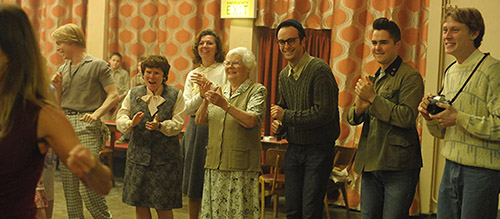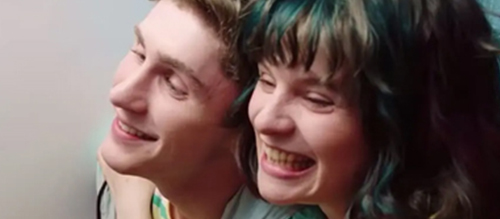5 British and Irish Films That Don’t ‘Bury Their Gays’
LGBTQ+ cinema often presents life outside of the hetero-normative lifestyle as being full of pain, heartache and often even death. Historically, the most critically acclaimed and universally celebrated LGBTQ+ films have tended to focus their narratives on the pain and suffering that members of the community can go through. This is often referred to as “burying your gays”, as the LGBTQ+ characters presented in these films are disproportionately given unhappy endings.
In an effort to counterbalance the negativity attached to films about the community, we have compiled a list of 5 British and Irish films that show LGBTQ+ people as (shock horror) real people!
Can you believe that we have actual lives that don’t constantly revolve around pain and suffering? Who knew, right?
As always, we encourage you to join the conversation. So, think we missed off a great, positive LGBTQ+ British or Irish film? Let us know about it in the comments or tweet us.
Warning: there may be spoilers ahead…
1. Pride (2014)
Pride (2014) is the true story of an organisation named Lesbians and Gays Support the Miners (LGSM), as told through the fictional Joe “Bromley” Cooper played by 2020’s star on the rise George Mackay (1917; The True History of the Kelly Gang).
LGSM was set up in 1984 by Mark Ashton and Mike Jackson, and raised £22,500 for striking miners. If this hadn’t been a real event, the relationship between the two polarising yet relatably marginalised groups might have felt a little forced, where in the film they first give the money to a Welsh mining town, making for a wholesome meeting of two different worlds.
The members of the small Welsh mining town have questions for LGSM, such as the memorable ‘Is it true that all lesbians are vegetarians?’ It is this comic relief that breaks down the barriers between the two groups and first indicates this film’s wholesome core. Ultimately, everyone is united by a song and dance, turning Pride away from a lot of the negative tropes associated with LGBTQ+ cinema. Sure, a film set during the 1984 Miner’s Strike isn’t going to be all joy, but Pride does not dwell on the pain of the era but rather celebrates its sense of community and togetherness.
One key uplifting fact is that Dominic West’s character Jonathan Blake was the 2nd person in the UK to be diagnosed with HIV, and he is still alive and dancing to this day.
2. Dating Amber (2020)
Dating Amber has been described as ‘Derry Girls’ meets ‘Sex Education’.
Set in Ireland in 1995, Eddie and Amber are both in the closet and decide to counter claims about their sexuality by faking a heterosexual relationship with each other until they leave school. Eddie wants to follow in his father’s footsteps and join the army, whereas Amber is going to move to London and open “an anarchist bookshop with franchise potential”.
Dating Amber is a sweet coming of age film with witty lines and without the typical corny storylines. The film features an amazing Irish cast, including Sharon Horgan, Fionn O’Shea (making his first of two appearances on our list) and Lola Petticrew. Petticrew is the highlight of the piece; she is so charming that it’s joyful to watch her depiction of a happy and confident baby lesbian. The film is not perfect, but it is a refreshing addition to the coming of age genre.
Recommended for you: Out (2020) Pixar Short Film Review



